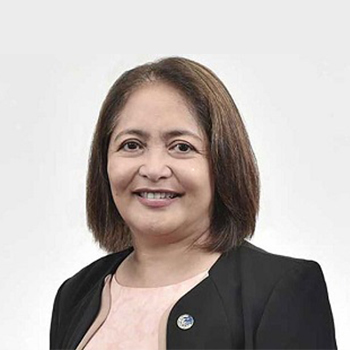- Tonik has launched its digital bank account in the Philippines
- The country’s central bank aims to increase financial inclusion through digital banking and payments adoption
- Incumbent banks in the country are increasing their investments on digital products to onboard more customers and reduce friction for existing customers
Tonik, a digital-only bank, launched in the Philippines as the first official neobank in the country. The bank is supervised by the Bangko Sentral ng Pilipinas (BSP), the country’s central bank, while its deposits are insured by the Philippine Deposit Insurance Corporation.
Customers can apply for a bank account in less than five minutes through the Tonik App, an ID and a selfie. Upon onboarding, customers are issued a virtual Mastercard debit card which they can use to pay for purchases online. The account can be topped up through more than 10,000 retail agents across the country, debit card or interbank services through the app. Tonik seeks to disrupt the Filipino retail banking industry by offering a 6% interest rate per annum to its customers. It also offers unique solo stash and group stash features and term deposits. Solo stashes allow consumers to allocate money into particular savings goals while earning as much as 4% in interest per annum. Group stashes enable at least three people to put money in a shared stash and earn as much as 4.5% interest per annum. The bank has announced that it will offer a physical debit card and an all-digital consumer loan in the future.
Tonik's cloud-based solution is powered by Mastercard, Finastra, and Amazon Web Services. Greg Krasnov, founder and CEO of Tonik, said, "We started Tonik because we were fed up with how traditional banks mistreat their customers. The fact that 70% of the Filipinos remain unbanked shows that the tedious onboarding process of traditional banks and their ridiculously low interest rates do nothing to satisfy the needs of the consumers. We believe that banking should be easy, fun, and – like most services these days – right there, in the palm of your hand. We are using world-class technology to dramatically cut operating costs which allows us to offer competitive interest rates and not to charge unfair fees to our customers".

Greg Krasnov is the Founder & CEO

Chuchi Fonacier Deputy Governor of the Financial Supervision Sector (FSS)
Greg Krasnov is the Founder & CEO
Currently, CIMB Bank and ING Bank are operating in the country as branchless banks and offer savings accounts, loans, payments, and insurance services through their respective banking apps.
Increasing financial inclusion through digital banking and payments adoption
Chuchi Fonacier, deputy governor of BSP, in a statement with S&P said, “Digital banks can help reduce the barriers that hinder financial access such as the small and irregular income of clients, high transaction costs, geographical distance, and lack of proper documentation. The BSP sees digital banks as partners in advancing financial inclusion in the country by leveraging digital technology to offer financial products and services that bridge the market gaps in the unserved and underserved segments".
Chuchi Fonacier Deputy Governor of the Financial Supervision Sector (FSS)
According to the BSP's financial inclusion survey released in 2020, 51.2 million Filipinos remain unbanked. However, the pandemic has hastened the adoption of digital banks. According to BSP governor Benjamin Diokno, about four million new accounts were opened digitally from March 17 to April 30 in 2020 in order to receive government subsidies and cash assistance.
Online adoption of banking and payment services also increased substantially mostly due to the extensive lockdown in the Philippines, one of the longest in the world.
The BSP aims to increase its financial inclusion to 70% of Filipino adults and shift all retail payment transactions to digital platforms by 2023.
South Africa’s TymeBank is also partnering with local conglomerate JG Summit Holdings to apply for a digital banking licence in the country.
Incumbent banks are increasingly focusing on digital products. Union Bank of the Philippines started its digital transformation four years ago and introduced The Ark, the country's first fully digital branch in 2017. Rizal Commercial Banking Corporation announced plans in January 2020 to establish a rural bank to engage in purely digital banking business. East West Banking Corporation launched its digital banking service, Komo, in May 2020.




All Comments